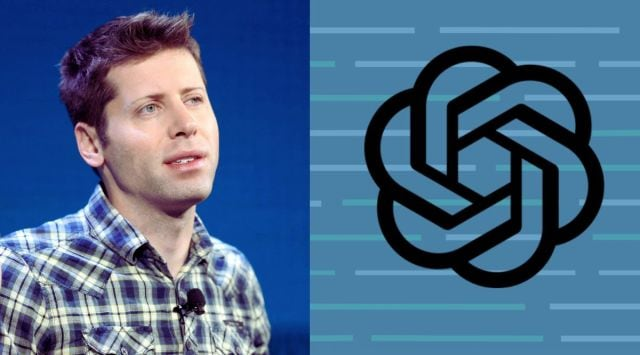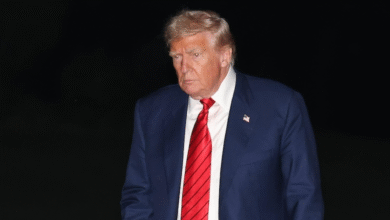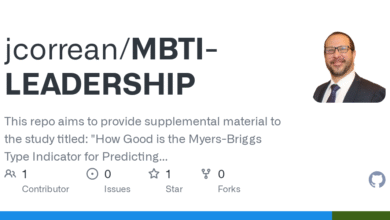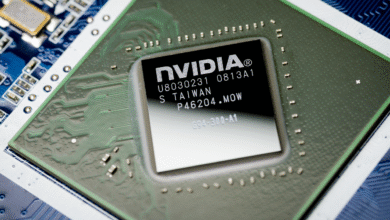OpenAI Lawsuit: Sam Altman’s Response to Iyo’s Claims

The OpenAI lawsuit has sparked significant attention after startup Iyo accused OpenAI of trademark infringement regarding its recent acquisition of Jony Ive’s AI hardware venture, io. CEO Sam Altman took to X to refute the claims, asserting that Iyo’s founder had previously sought an acquisition and investment from OpenAI. Describing the lawsuit as “silly, disappointing, and wrong,” Altman highlighted the persistence of Iyo’s CEO, Jason Rugolo, in trying to strike a deal with OpenAI. As the legal battle unfolds, it raises questions about the implications for the rapidly evolving AI industry. Amidst these challenges, OpenAI faces additional lawsuits, including a copyright infringement case from The New York Times and a breach of contract claim from its co-founder Elon Musk, adding complexity to its business landscape.
In a recent development in the tech sector, OpenAI has found itself entangled in a legal dispute with the startup Iyo, which alleges that the tech giant is infringing on its trademark rights. This controversy emerged following OpenAI’s announcement regarding its acquisition of Jony Ive’s innovative company centered on artificial intelligence hardware. Sam Altman, the leading figure at OpenAI, has publicly addressed these claims, stating that the accusations stem from previous proposals made by Iyo for partnership and investment opportunities. The situation illustrates a growing tension in the competitive landscape of AI startups, as companies like Iyo strive to protect their identities while navigating the challenges of partnership negotiations and patent rights. As OpenAI contemplates its next steps in response to this lawsuit, the case highlights the broader struggles and legal intricacies faced in the pursuit of technological advancement.
OpenAI Lawsuit: A Closer Look at Trademark Infringement Claims
The recent lawsuit filed by the startup Iyo against OpenAI has brought to light significant concerns regarding trademark infringement. Iyo accuses OpenAI of unfair competition primarily due to the company’s acquisition of Jony Ive’s AI hardware startup, io. This legal case not only threatens the identity of Iyo but also raises questions about the boundaries of intellectual property and competition in the rapidly evolving AI industry. With trademarks serving as critical components of brand recognition, this lawsuit underscores the complexities faced by tech startups as they navigate their innovative paths amidst competition from larger entities like OpenAI.
Sam Altman’s response to the claims has been candid, labeling the suit as “silly, disappointing, and wrong.” He highlighted the persistence of Iyo’s founder, Jason Rugolo, in seeking to partner with or sell to OpenAI. Such exchanges illustrate a growing trend in the tech landscape where startups attempt to align with larger firms, yet face backlash when such transactions do not materialize. The implications of this lawsuit could reverberate across the industry, potentially altering how companies approach partnerships and acquisitions while protecting their brands.
Sam Altman’s Position on the Iyo Lawsuit
In a recent post on X, Sam Altman directly addressed the Iyo lawsuit, providing insights into OpenAI’s stance and the ongoing dialogue between the two companies. Altman’s assertion that Rugolo’s persistent efforts for acquisition and partnership were unwelcome highlights a precarious balance in the tech world. While startups often view acquisitions as pathways to growth, larger entities like OpenAI must tread carefully to avoid legal entanglements that disrupt their business model and innovation efforts.
Altman shared correspondence that suggested Rugolo’s desires extended beyond simple business discussions to outright acquisition of Iyo by OpenAI. This willingness to pursue alternative routes for growth demonstrates the intense competition within the AI sector. The industry is witnessing a race not just for technological innovation but also for securing valuable intellectual property, which can be a source of contention leading to trademark disputes.
The Impact of Legal Troubles on OpenAI’s Growth Strategy
Legal challenges, such as the lawsuit from Iyo, pose significant risks to OpenAI’s aspirations as it seeks to expand its capital and operational reach. The intersection of creativity, technology, and legal frameworks creates a complicated environment, particularly as OpenAI looks to attract investments for its innovative AI models. Litigation can serve as a distraction, potentially hampering the speed at which OpenAI can launch new products and services into the market, especially in a dynamic industry that thrives on agility and adaptability.
Moreover, the ongoing legal disputes OpenAI faces, including copyright claims from The New York Times and a separate suit from Elon Musk, compound these challenges. Each lawsuit requires resources and attention that could otherwise be invested in development and innovation. As OpenAI navigates these hurdles, the company must also remain focused on bolstering its reputation and maintaining public trust, crucial elements for attracting future investments and partnerships.
Insights into Iyo’s Branding and Market Position
The lawsuit against OpenAI has inadvertently spotlighted Iyo and its market position. As a startup accused of trademark infringement, Iyo faces the daunting task of defending its brand and identity in an increasingly competitive landscape. With innovative products like the Iyo One in-ear wearable device, Iyo has the potential to carve out its niche in the wearable technology market. However, such legal disputes could overshadow their product launches and branding efforts, thereby impacting consumer perception and market presence.
Rugolo’s argument that OpenAI could opt for other two-letter names emphasizes the significance of branding in the context of innovation and technology. For Iyo, safeguarding its trademark is critical not only for its identity but also for consumer trust and recognition. As the wearable device market continues to evolve, the outcomes of this lawsuit could set precedents affecting how startups defend their intellectual properties amidst competition with larger corporations.
The Role of Intellectual Property in AI
Intellectual property (IP) plays a crucial role in the growth and sustainability of companies in the AI sector. As innovations proliferate, the need to protect unique technologies and ideas becomes paramount. OpenAI’s acquisition of Jony Ive’s startup underscores the importance of IP in fostering partnerships that enhance product offerings while also posing the risk of legal entanglements, as seen in the case against Iyo.
The challenges surrounding IP, including trademark infringement, highlight a broader conversation about the ethical implications of AI technology and corporate practices. As companies push boundaries in technological advancements, the intersection of IP rights and competitive practices will become increasingly critical in shaping the future landscape of the industry. Navigating these legal frameworks will require ongoing dialogue and revision of policies to protect both innovation and ethical competition.
The Future of AI Hardware and Startups
The growing interest in AI hardware represents a lucrative frontier for startups and established companies alike. With the high stakes involved in developing innovative technologies, the acquisition of startups like Jony Ive’s io illustrates the competitive drive within the market. Startups that can leverage unique propositions in the AI hardware space have the potential to attract significant attention and investment, but they must also be wary of the legal complexities that arise in these interactions.
As more companies emerge in the AI hardware sector, they will inevitably face challenges similar to those Iyo is currently experiencing. The balance between collaboration and competition can be delicate, and how startups position themselves will define their ability to thrive. By establishing strong legal frameworks around their intellectual property, these companies can better protect their innovations while engaging in potentially fruitful partnerships.
Analyzing the Implications of Unfair Competition Claims in AI
Claims of unfair competition, such as those made by Iyo against OpenAI, raise essential questions about market dynamics within the AI sector. As companies strive to differentiate themselves, the line between competitive practices and anti-competitive behavior can blur. This lawsuit raises critical considerations for all players within the industry to reflect on their practices to ensure they do not inadvertently infringe on others’ rights.
Furthermore, such cases may have implications beyond the specific companies involved. They set precedents that could shape the operational frameworks of the AI industry at large. As the landscape continues to mature, it will be essential for companies to not only invest in groundbreaking technologies but also develop strategies to navigate the legal challenges posed by competition and protect their market positions.
Sam Altman’s Vision for OpenAI Amidst Legal Challenges
Despite the legal hurdles, Sam Altman’s vision for OpenAI remains focused on innovation and growth in the AI domain. His public comments reveal a commitment to fostering a collaborative and progressive environment, one that values the contributions of emerging startups while remaining vigilant in protecting its own interests. By navigating these challenges thoughtfully, Altman aims to ensure that OpenAI continues to lead in groundbreaking tech advances.
Altman’s emphasis on wishing Iyo success indicates an acknowledgment of the vibrant innovation ecosystem in which OpenAI operates. By recognizing the potential of other players in the field, Altman is paving the way for a competitive yet collaborative landscape that can foster advancements in AI. This reflects a broader industry trend, where cooperation among different entities might yield more significant breakthroughs than outright competition.
Why Trademark Awareness is Crucial for Startups
For startups like Iyo, trademark awareness is crucial not only for branding purposes but also for safeguarding their innovative ideas against infringement. As they develop unique products, understanding the nuances of trademark law can empower them to protect their identities and investments effectively. A strong trademark can lead to significant competitive advantages in markets saturated with rapidly evolving technologies.
Moreover, this situation emphasizes the need for startups to consult with legal experts early in their development stages. As they navigate the complexities of business growth, having an informed approach to trademark registration and enforcement will be essential. This proactive strategy will help mitigate the risks of facing unwarranted legal challenges, allowing startups to focus their energies on innovation and market development.
Frequently Asked Questions
What are the details of the OpenAI lawsuit brought by Iyo regarding trademark infringement?
The OpenAI lawsuit initiated by Iyo revolves around accusations of trademark infringement concerning OpenAI’s acquisition of Jony Ive’s hardware startup, io. Iyo claims that the use of the name ‘io’ by OpenAI threatens their brand identity and causes unfair competition.
How did Sam Altman respond to the Iyo lawsuit against OpenAI?
In his response on X, Sam Altman criticized the Iyo lawsuit as ‘silly, disappointing, and wrong.’ He revealed that Iyo’s founder, Jason Rugolo, had persistently sought investment from OpenAI and suggested an acquisition, which highlights the context of their legal claims.
What impact did the Iyo lawsuit have on OpenAI’s acquisition announcement?
Following the Iyo lawsuit and a temporary restraining order granted by the court, OpenAI removed their blog post about the acquisition of Jony Ive’s startup from their website, citing the trademark complaint from Iyo concerning the use of ‘io’.
What claims did Iyo make regarding unfair competition in the OpenAI lawsuit?
Iyo alleged that the acquisition of Jony Ive’s startup by OpenAI involved unfair competition and trademark infringement, suggesting that it put them in jeopardy of losing their brand identity and market presence.
Is OpenAI facing other legal challenges apart from the Iyo lawsuit?
Yes, besides the Iyo lawsuit regarding trademark infringement, OpenAI is involved in copyright infringement litigation with The New York Times and a breach of contract lawsuit from co-founder Elon Musk.
What does Sam Altman suggest about the nature of the Iyo lawsuit in his statements?
Sam Altman suggests that the Iyo lawsuit is a misguided attempt at leveraging OpenAI’s interest in his company’s innovations, stating that the lawsuit reflects a persistent push from Iyo’s CEO for investment or acquisition rather than a legitimate trademark concern.
What products is Iyo currently promoting amid their lawsuit against OpenAI?
Amid the lawsuit against OpenAI, Iyo is actively promoting pre-orders for their Iyo One in-ear wearable device, which is notable for its use of 16 microphones.
How does the OpenAI lawsuit reflect on the competitive landscape of AI startups?
The OpenAI lawsuit exemplifies the competitive tensions within the AI startup ecosystem, as emerging companies like Iyo seek to protect their brand amid larger entities like OpenAI, which continue to expand their technological reach and influence.
What future steps might OpenAI take in response to the trademark complaint from Iyo?
In his statement, Sam Altman indicated that OpenAI does not agree with Iyo’s trademark complaint and is currently reviewing their options, which may include legal defenses or negotiations.
What are the broader implications of the OpenAI lawsuit for AI innovation?
The broader implications of the OpenAI lawsuit include ongoing concerns about intellectual property rights and competition as AI innovations evolve, with calls from Altman suggesting the need for more focus on product development rather than legal disputes.
| Key Point | Details |
|---|---|
| OpenAI Lawsuit | A lawsuit filed by Iyo, accusing OpenAI of trademark infringement related to the acquisition of io. |
| CEO Response | Sam Altman criticized the lawsuit as ‘silly, disappointing, and wrong,’ highlighting Iyo’s persistent attempts to sell to OpenAI. |
| Temporary Restraining Order | A judge granted a restraining order, leading OpenAI to temporarily remove acquisition-related content from their website. |
| Related Legal Challenges | OpenAI faces multiple lawsuits, including a copyright case against The New York Times and a breach of contract lawsuit from Elon Musk. |
| Iyo’s Product Launch | Iyo is accepting pre-orders for its new wearable device, the Iyo One, featuring 16 microphones. |
Summary
The OpenAI lawsuit by Iyo marks a significant moment in the tech industry, illustrating the complexities of trademark disputes amidst rapidly evolving business relationships. With accusations of trademark infringement and claims of unfair competition, this case highlights the ongoing legal challenges that innovative companies face as they grow and pivot strategically. OpenAI’s responses emphasize a commitment to exploring legal avenues while encouraging a spirit of innovation, indicating that they aim to focus on product development rather than prolonged litigation.




